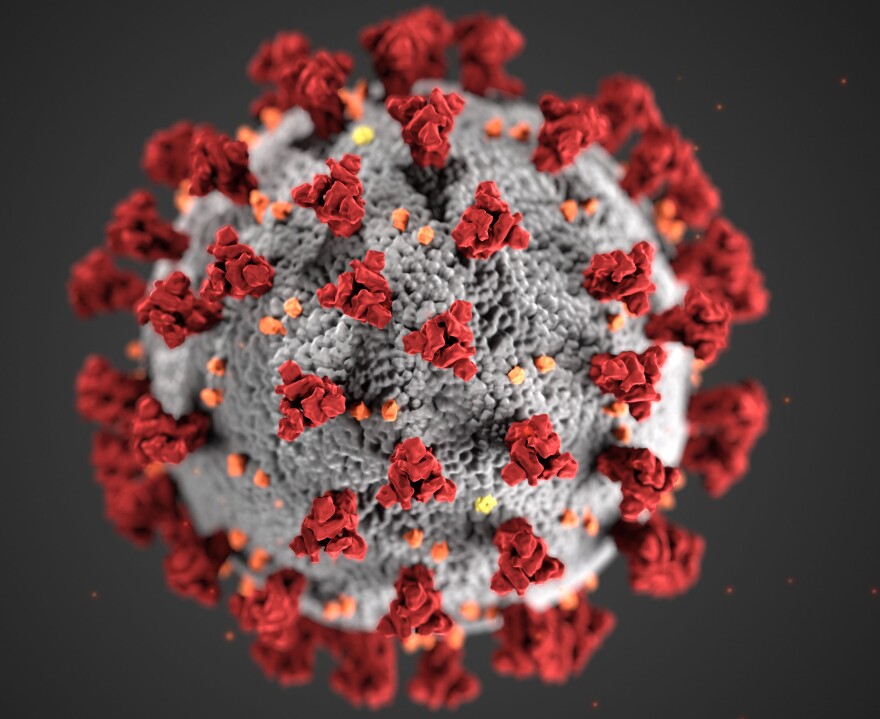
It's not the typical thick, green coating of pollen that has people scrambling indoors this spring in Charleston.
Instead it's something much more serious; a highly contagious coronavirus with a spiky crown, prickling communities with fear and prompting the World Health Organization to declare a pandemic.
But like the pesky pollen, the new and potentially deadly virus is striking at the start of Charleston's busy tourist season.
"I think what's driving the fear and angst in the general individual is the unknowing," says Michael Schmidt, Ph.D. He's a professor of microbiology and immunology at the Medical University of South Carolina.
What is known: more than 130,000 people have been infected by the coronavirus worldwide since it first appeared in Wuhan, China back in December; nearly 5,000 have died, and it’s especially taken a toll on those who are older or have underlying medical conditions.
Now South Carolinians are beginning to test positive as well; about a dozen in all, in Kershaw, Lancaster, Spartanburg and Charleston Counties.
The symptoms of fever, cough and difficulty breathing can be relatively mild and easily overcome. That’s the good news.
“It’s also part of the bad news too because those individuals are likely walking around with the virus in what’s called a subclinical infection,” says Schmidt with MUSC
In other words, many people may have the virus and are passing it on without even knowing they are carriers.
That has health officials calling for “social distancing” or avoiding crowds. Major money-making events that rely on throngs of people are shutting down.

Officials with the Volvo Car Open, the largest women’s only pro tennis event in North America, have decided they can’t rally with the coronavirus threat. They’ve cancelled what was supposed to be the 20th annual, nine-day April event.
It typically attracts nearly 90,000 spectators who spend millions staying, eating and taking in the sights of Charleston; a city Travel and Leisure Magazine has repeatedly ranked as one of the best tourist destinations in the world.
The Holy City, as it's affectionately called, and surrounding communities have also cancelled Saint Patrick’s Day celebrations. Parris Island shuttered its ceremonial graduation for Marines. The College of Charleston told students not to come back after spring break this year. Instead, they're instructed to study online the following week.
So, what’s next?
The city annually hosts the Cooper River Bridge Run; a 10K more than 40 years old that can draw as many as 40,000 runners and walkers across a steep, but breath-taking span. It's said to be the 3rd largest such race in the nation.
Then there’s the Flower town Festival in Summerville, going strong since 1972. It celebrates spring in all its glory, hot pink azaleas, purple wisteria and delicate, white dogwood.
"There are a lot of public gatherings that are going to have to be really thought about in the next few weeks as we get more information," says Wayne Smith, Ph.D. He's a professor and chair of the Hospitality and Tourism Management Department at the College of Charleston's School of Business.
Charleston contributes largely to the state's nearly $24 billion tourism dollar industry.
This year, white tents are sprouting from the pavement at a parking lot near the Medical University of South Carolina’s West Ashley Pavilion. That’s where people with symptoms and a doctor’s note can drive through and get swabbed for the coronavirus without getting out of their cars.
It’s the beginning of what the hospital hopes is direct testing for potential patients who may have the virus. Right now, all testing is done through the Department of Health and Environmental Control. Hospital officials say that can take several days.
“If we test locally, we can get the results in a day or two at the longest,” says Dr. Rick Nolte, the Director of Clinical Laboratories at MUSC.
He says the hospital is waiting for a special FDA approved piece of equipment to conduct the testing, expected to arrive in a couple of weeks. Direct testing, he says, could make a huge difference.
"Hopefully for the first time we'll have a real idea of how widespread the disease is. That's still the basic problem," Dr. Rick Nolte, MUSC.
“Hopefully for the first time we’ll have a real idea of how widespread the disease is,” Nolte says. “That’s still the basic problem.”
How many people have the virus and don't know it. How many are spreading it through simple person to person contact?
South Carolina has 5 million residents. So far, 123 people have been tested.
More accurate information could help contain the coronavirus; keep hospitals from becoming overwhelmed, offices from shutting down, paychecks flowing and relieve the anxiety of the unknown.
"I think we could do better in the years between these kind of outbreaks," says Dr. Helmut Albrecht.
He's an infectious disease specialist in Columbia who helped establish an Ebola Unit at Emory University and has been involved in planning for other epidemics like the H1N1 virus as well as SARS.
"We always believe when it starts burning, we can build a fire truck," he says referring to such outbreaks.
"But by the time you get it under control, half the building could be gone."
The nation, Dr. Albrecht says, needs to be better prepared.



